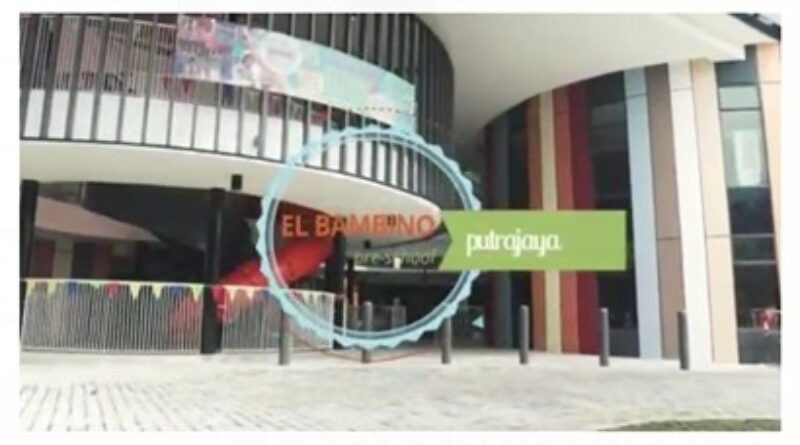Ceriakan Pendidikan Anak Anda Di El Bambino Putrajaya
PUTRJAYA – Ahli Parlimen Putrajaya, Datuk Seri Tengku Adnan Tengku Mansor sentiasa menekankan bahawa pendidikan adalah ruang terbaik anak-anak untuk melakar masa hadapan. Sehubungan itu, pembukaan Montessori El Bambino Putrajaya menyediakan ruang lengkap sebagai pendidikan awal untuk anak-anak yang bakal memberikan ruang kepada mereka bagi meneroka masa hadapan.
Persoalan kenapa Montessori ini yang menjadi pilihan adalah seperti berikut atau layari elbambino.my:
Why You Choose El Bambino For Your Children Pre-School?
‘What makes Montessori unique is the emphasis on individual progress and giving children opportunities to extend and engage with the learning environment for long periods of time,’
Barbara Isaacs,
Chief Education Officer for Montessori St Nicholas.
‘Montessori works really well alongside the El Bambino curriculum. El Bambino used Permata and KSPK as its guidance to monitor and classify the children with their natural ability developments and El Bambino used Montessori as the technics or methods to help the children to be more skilled, independently and responsibility towards their growth. Both focus on the individual needs of the child, good relationships between teacher and learner, and a positive learning environment.
The right Montessori methods give benefit to the children through their emotional wellbeing that comes from making choices independently, and knowing those choices come with responsibility.
This capacity for a child to be in control of their own learning builds independence, autonomy and the ability to engage the attention for long periods of time, alongside social awareness.
Results-wise, preschool with a Montessori approach do well. ‘As a way of teaching, instinctively I know it’s right,’ says Carol Powell, the former head teacher of Gorton Primary School in Manchester, which uses Montessori methods in the Early childhood foundation. ‘The children are more skilled than they were before, our results have gone up, and the best thing for me is that they have improved the socialised behaviour.’
El Bambino’s class and facilities prepared the environment and has been set up for range of activities for children to choose what they want to do, engaging with each for as little or as long as they want.
At El Bambino (EB) classroom, a child might do up to more than 5 Montessori activities in 3 hours daily activity and the activities can be done it alone, some with a friend, some in a small group and some with the teacher.
The teacher’s role is to ensure that the environment is perfectly prepared, with everything ready for children to use to support their spontaneous choice. She will have a broad plan of what she would like children to be engaged in, based on their individual interests, and will observe and encourage them as they take part.
Through the observation teacher track progress, the child individually, rather than formal assessments and tests like conventional preschool do, and EB homework is rarely given.
Et EB, we treat children like equals same level as the adult, and the child dictates the pace of what they do day-to-day, this give them confident talking to adults, and is very good at walking into a new environment and working out what their wants to explore.
The Montessori activities will covered 5 areas in children development:
1. Sensorial
2. Practical
3. Language
4. Science
5. Math
There are certain key principles of the EB would like achieve through the Montessori methodology:
1. Order and structure Although learning is child-led, children need order and structure to thrive. Everything in the classroom has its place, and children take responsibility for putting one activity away before moving on to another.
2. Sensory learning Children learn through the senses, so Montessori puts emphasis on preparing teaching materials with great care.
3. Freedom The single most important factor in child development, according to Maria Montessori. The Montessori classroom provides experiences, activities and environments that encourage children to follow their natural instincts.
4. Sensitive periods The Montessori movement says that children move through ‘sensitive periods’ when they’re particularly receptive to learning a new skill, such as reading, writing or counting. Teachers watch out for these opportunities and take advantage of them, rather than trying to get a child reading or writing at a certain age.
5. Discipline is seen as something that should come from inside, rather than being imposed. Teachers focus on helping children develop social and emotional skills. Rewards and punishments are not used, and teachers will only step in when a child is behaving in a disruptive or upsetting way. – UMNOPutrajaya










You must be logged in to post a comment.